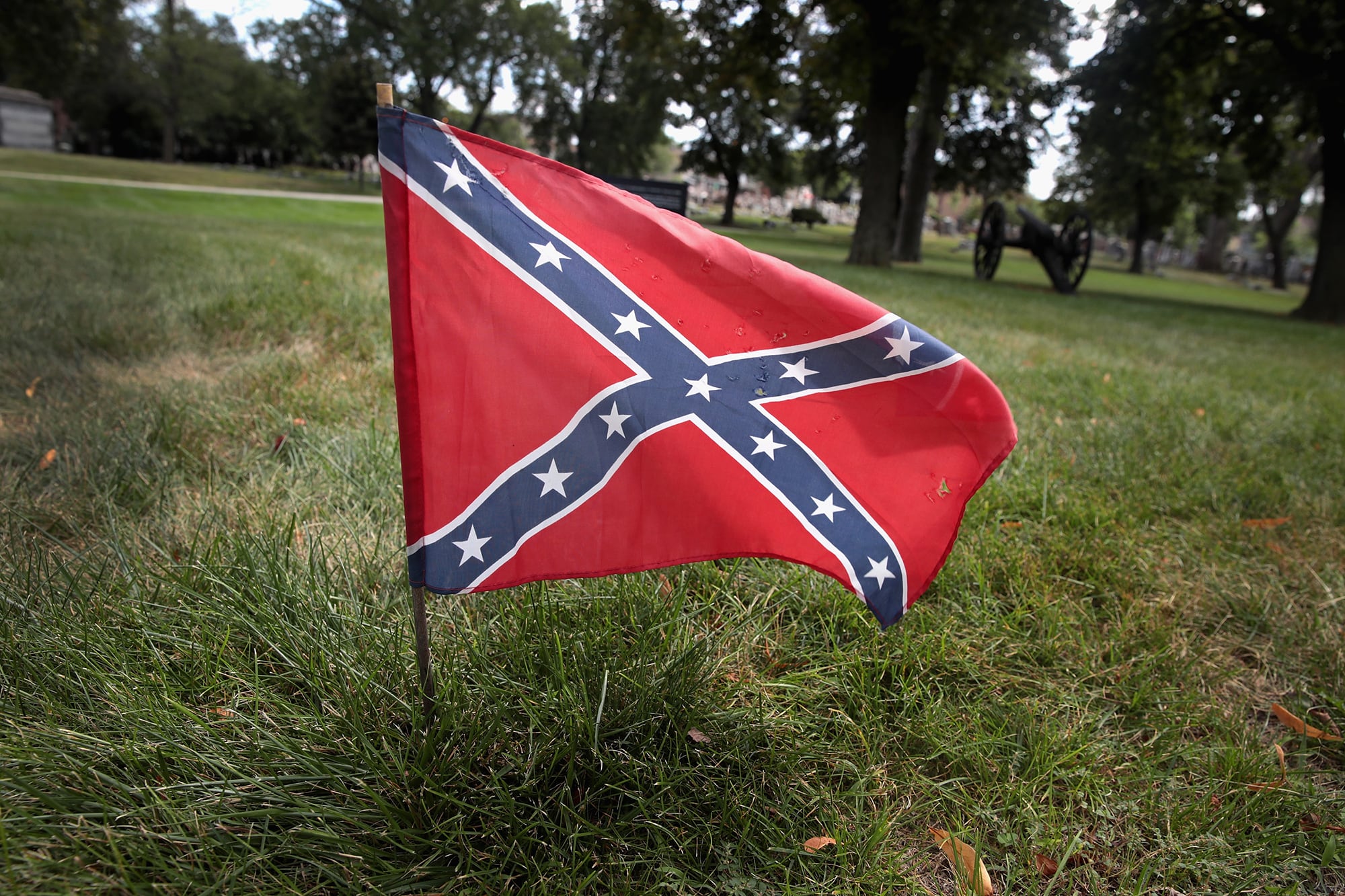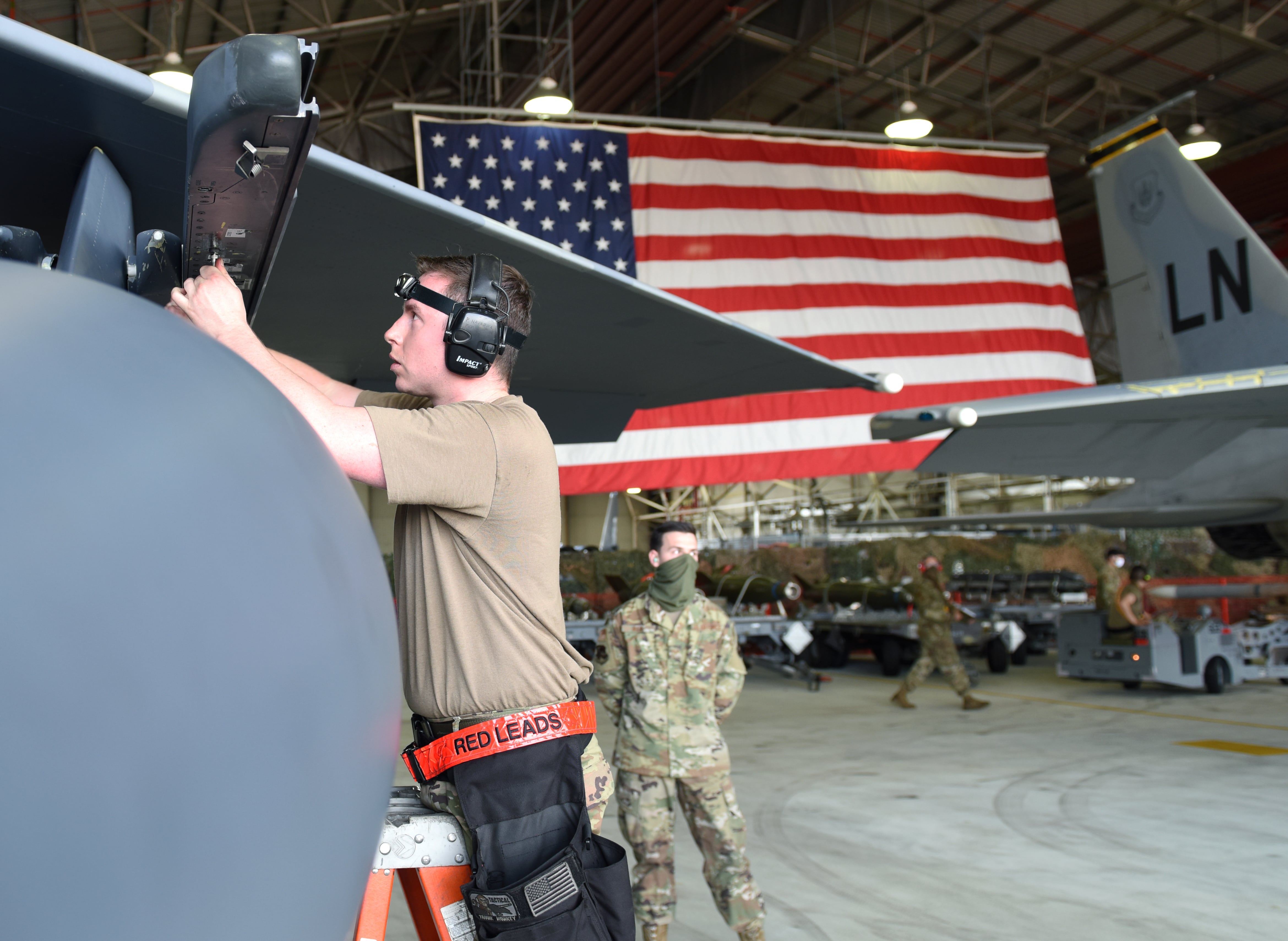A House panel late Wednesday approved plans for a $740.5 billion defense authorization bill which would provide a 3 percent raise for troops, limit the president’s ability to withdraw troops from Europe and Afghanistan, and force the military to reckon with Confederate symbols and legacy on its bases.
The legislation already faces a veto threat on that last issue, with President Donald Trump vowing on Tuesday to block any legislation that requires the renaming of well-known Army bases which currently honor Confederate military leaders.
But the potentially problematic authorization bill approved by the House Armed Services Committee after more than 13 hours of debate gained support from both Republicans and Democrats, who in recent days have emphasized the importance of passing the overall budget policy package for the 60th consecutive year.
“We have to always remember that our foremost obligation is to America’s national security and the men and women who provide it,” said committee ranking member Rep. Mac Thornberry, R-Texas. “Nothing should distract or undermine our ability to carry out that mission.”
Unlike last year, when the committee’s authorization plan advanced without any Republican support, this year’s measure contained relatively few philosophical sticking points. The final vote was 56-0.
Total spending was set in a bipartisan budget agreement last year, and other contentious issues — such as nuclear weapons reductions — were left out by Democratic leaders anxious to avoid last year’s bruising partisan fights.
“I’ve disagreed with it, but I’m putting all of that aside for the moment,” committee chairman Rep. Adam Smith, D-Wash., said of the nuclear modernization fight. “We had that debate last year. It came out the way it came out. It’s not going to change this year.”
The 3 percent pay raise enjoyed widespread support among lawmakers, not just in the House panel but also with the Senate Armed Services Committee, whose members have already backed that level in their draft legislation.
The mark mirrors both the White House request for a military pay raise in 2021 and the federal formula for that wage increase. If it becomes law, the boost would represent the first time in a decade that troops have seen consecutive years of 3 percent raises. This past January, military pay increased by 3.1 percent.
For junior enlisted troops, the proposed raise would amount to roughly $860 more a year in pay. For senior enlisted and junior officers, the hike equals about $1,500 more. An O-4 with 12 years service would see more than $2,800 extra next year under the increase.
The bill includes large benefits for the defense industry, matching the president’s requests for 79 Lockheed Martin F-35 aircraft, Boeing F-15EX fighters and a host of other weapons platforms.
The HASC’s authorization for eight ships restored a Virginia-class attack submarine the Trump administration sought to cut, which is a boost for the Electric Boat and Newport News shipyards, which will also build the Columbia-class sub. The Senate Armed Services Committee approved a similar proposal.
The panel also approved a plan to transfer $1 billion from the Air Force’s next-generation intercontinental ballistic missile to pandemic preparedness. Northrop Grumman is the sole competitor for the program to develop the Minuteman III missile replacement, called the Ground Based Strategic Deterrent.
And the legislation also includes a $1 billion pandemic response and preparedness fund, to help boost production of key medical equipment sought by states amid the country’s fight against the coronavirus pandemic.
Lawmakers approved limits on both Trump’s ability to move troops out of Germany — the White House has announced plans to move 9,500 service members out of the country in coming months — and Afghanistan.
Democratic lawmakers said the latter is not meant to discourage the administration from ending the now 18-year-old war there, but instead to ensure that large-scale troop withdrawals are not done in a haphazard fashion.
RELATED

Those provisions could become friction points with Senate negotiators later this summer, as could the bill language dealing with Confederate symbolism in the ranks.
The House bill would require a full ban of the Confederate battle flag from all military installations, to include living quarters, vehicles and personal apparel. It would also give military leaders one year to rename bases that currently honor Confederate leaders, such as Fort Bragg in North Carolina and Fort Hood in Texas.
Senate Armed Services Committee members included similar renaming language in their legislation, but chairman Jim Inhofe, R-Okla., has vowed to amend it before final chamber passage.
That work is expected to take place after the July 4 recess. The full House is expected to take up their draft of the authorization before August too, leaving the remainder of the summer for chamber staff to negotiate a final compromise bill to present to Trump.
But the looming November election and ongoing coronavirus pandemic — which forced multiple House committee members to participate in the marathon debate over the internet — could push final passage deep into the fall.
Leo covers Congress, Veterans Affairs and the White House for Military Times. He has covered Washington, D.C. since 2004, focusing on military personnel and veterans policies. His work has earned numerous honors, including a 2009 Polk award, a 2010 National Headliner Award, the IAVA Leadership in Journalism award and the VFW News Media award.
Joe Gould was the senior Pentagon reporter for Defense News, covering the intersection of national security policy, politics and the defense industry. He had previously served as Congress reporter.




